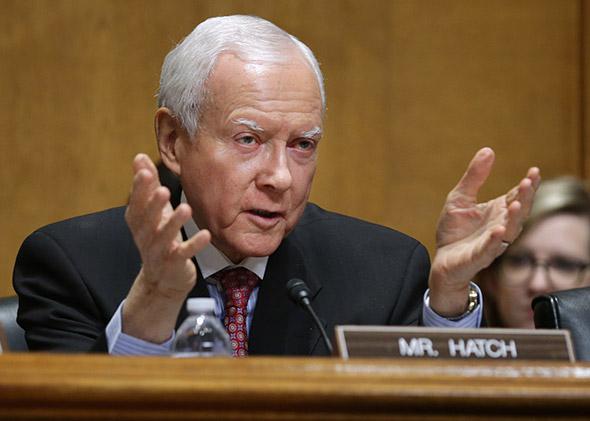In 1996, the U.S. Senate voted 50–49 against the Employment Nondiscrimination Act, a bill to outlaw job discrimination on the basis of sexual orientation. Yesterday, the Senate passed ENDA, 64–32. But the bigger story is what didn’t happen. Only one senator spoke against the bill, and only about religious exemptions. The political resistance has completely collapsed.
The Senate’s 1996 schedule didn’t allow much time for debate. But of the 50 senators who voted down the bill, at least seven spoke on the floor against it. Here’s some of what they said:
1. [U]nder this section, homosexuality and heterosexuality must be treated entirely alike. Suppose a male teacher kisses his female spouse goodbye in front of the schoolchildren in the morning as she drops him off at school. Some might find such warmth and affection between husband and wife a good thing for the children to see. But Loudoun County would have to fire that male teacher before this bill would permit the county to fire a male teacher for kissing his male partner in front of the children at school. … [F]orcing Loudoun County to treat both situations the same, in terms of role models for schoolchildren and the other concerns parents and educators might have, is wrong.
2. If you have heartfelt convictions and beliefs should you, once you step out of church, be forced to hire someone whose sexual orientation offends you?
3. Bisexual, by definition, means promiscuous, having relations with both male and female. We are going to give that a Federal preferred protected status under this legislation.
4. There are thousands of former homosexuals, individuals who once were engaged in a homosexual lifestyle, who have changed that lifestyle and have repudiated it and find themselves to be engaged in heterosexual lifestyles. So it is clear to me that, while there may be a genetic base for the activity in some respects, it is clear that it is an activity of choice in other respects and that it is a choice which can be made and unmade.
5. The signal we send in this bill is the wrong signal. It contains seeds of real instability and inappropriate activity, seeds of litigation which could grow way out of hand and send the wrong signals to young people and provide a special standing and class—not based upon existence and construction but upon conduct. Not based upon sex but upon sexual activity.
6. ENDA would elevate sexual orientation to a much higher level, giving Federal protection and sanction, almost a Federal acceptance to promiscuity.
7. Should the Senate run roughshod over the concerns of parents and educators about having homosexuals teach their kids?
8. The American people have never regarded homosexuality or bisexuality as the moral or legal equivalent of heterosexuality, whether in the workplace or not.
9. Is [Congress] now going to tell every private employer in America that, regardless of his or her own moral judgment, homosexuality and bisexuality are just another orientation that Congress has decreed to be irrelevant?
Senate Majority Leader Trent Lott, R-Miss., delivered the closing statement against the bill. “ENDA, in my opinion, is part of a larger attempt to equate, by law … homosexuality, bisexuality, or heterosexuality. This is part of a larger campaign to validate or to approve conduct that remains illegal in many States,” he said. “It would put the full force of the Federal Government behind the campaign to validate a lifestyle that is unacceptable in many areas.” Lott concluded that “this legislation is out of sync with the majority of American people.”
This week, as the Senate reconsidered ENDA, no one repeated those arguments. In the floor debate, no one equated homosexuality or bisexuality with promiscuity. No one claimed that homosexuality was a choice or was relevant to employment. No one suggested that gay people shouldn’t teach kids or that it was fine to reject a job applicant because her orientation “offends you.” The Senate Republican leader said nothing. Sen. Orrin Hatch, R-Utah—the man who in 1996 defended the right of Loudoun County to fire a gay teacher, but not a straight one, for kissing his partner while being dropped off at school—voted for the bill this time. And Sen. Dan Coats, R-Ind.—who protested in 1996 that ENDA would “give the Federal stamp of approval to activities that are still considered illegal in many States”—was reduced yesterday to requesting broader exemptions for religious freedom.
The vote on ENDA was far from unanimous. But the silence of its opponents is deafening. They know that the tide has turned against them. Many Americans still think that homosexuality is a choice or an illness, that gays shouldn’t be teachers, and that any employer should be free to make hiring decisions based on sexual orientation. But these Americans can no longer find a politician willing to say such things on the Senate floor.
